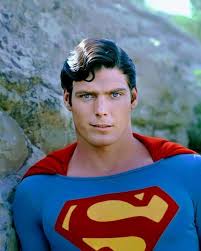The Inspiring Legacy of Christopher Reeve

Introduction
Christopher Reeve, best known for his iconic role as Superman in the late 1970s and 1980s, remains a figure of great importance not only in the film industry but also in the realm of advocacy for spinal cord injury research. His journey from Hollywood stardom to becoming a leading voice for medical research has left an indelible mark on both society and the medical community. As of late 2023, reevaluating his contributions brings renewed attention to ongoing efforts in spinal injury rehabilitation and the quest for breakthroughs in treatments.
Reeve’s Early Career
Born on September 25, 1952, in New York City, Christopher Reeve found his passion for acting early on. He rose to fame with the release of “Superman” in 1978, a monumental role that solidified his status as a Hollywood A-lister. However, his career was eclipsed by a tragic accident in 1995 when a horse riding incident left him a quadriplegic.
Advocacy and Research
Following his accident, Reeve dedicated his life to advocating for spinal cord injury research and support for those living with disabilities. He founded the Christopher Reeve Foundation, which aims to facilitate research, promote public awareness, and improve the quality of life for people with paralysis. Under his leadership, the foundation raised millions for research, significantly impacting the scientific approach to spinal cord injuries. Reeve’s advocacy was instrumental in pushing for policy changes and increased funding for research initiatives.
Legacy and Progress
After his death in 2004, the work of the foundation continued, leading to significant advancements in treatments for spinal cord injuries. With ongoing research and clinical trials, scientists have achieved breakthroughs in the regeneration of nerve cells, restoring some function in trial participants. The Christopher & Dana Reeve Foundation remains a beacon of hope, promoting innovative solutions such as stem cell therapy and neuroprosthetics that could benefit millions in the future.
Conclusion
Christopher Reeve’s journey from a celebrated actor to a passionate advocate is a testament to resilience and the power of the human spirit. His legacy continues to inspire research and development in spinal cord injury treatments today. As awareness of these issues grows worldwide, the progress made in the field serves as both a tribute to his life and an ongoing commitment to those affected by paralysis. The glimmer of hope that Reeve championed rings through the hearts of many, reminding us that with determination, challenges can be transformed into a catalyst for change.









